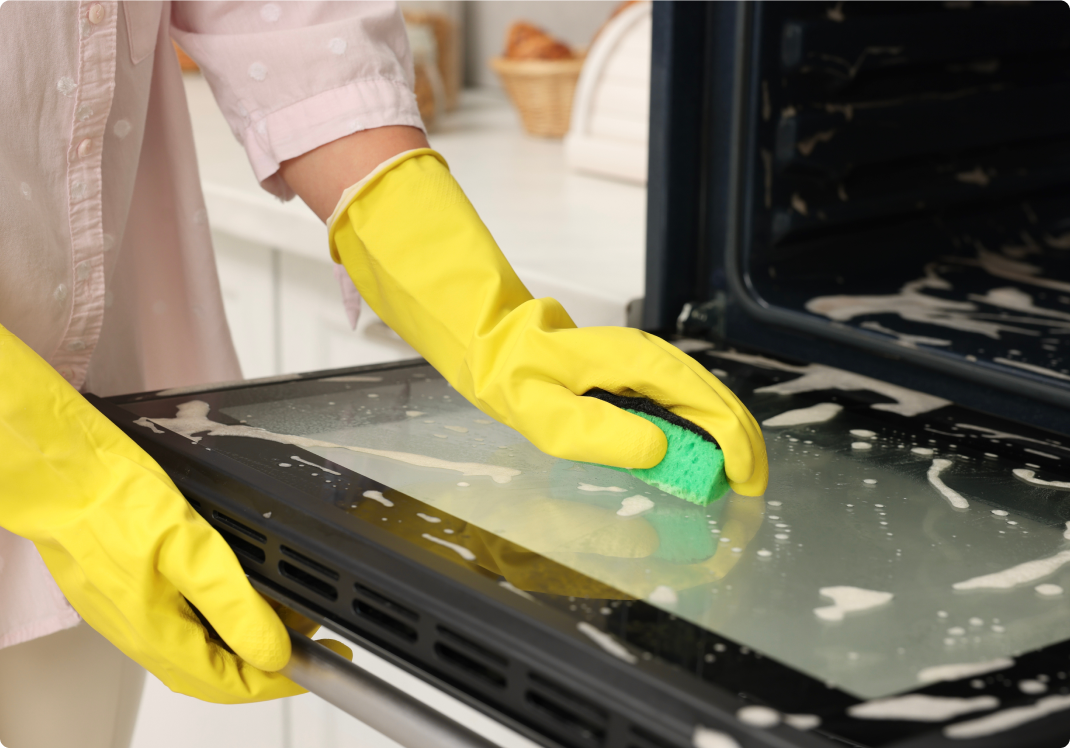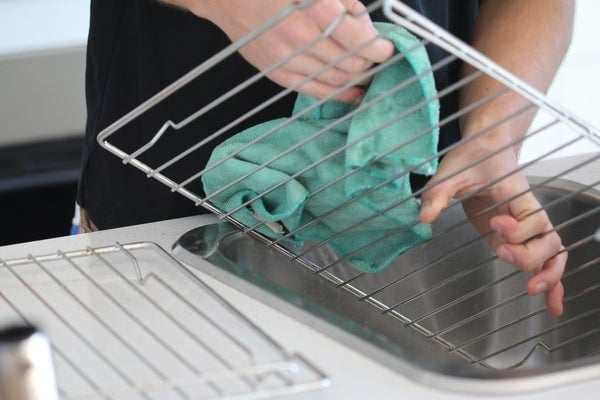Getting Down and Dirty: How To Clean An Oven

Dirty oven? When you have a spill it's best to clean it up right away, but whether you have an electric or gas oven, American Home Shield® has tips to keep it spotless and in great shape over time.


Dirty oven? When you have a spill it's best to clean it up right away, but whether you have an electric or gas oven, American Home Shield® has tips to keep it spotless and in great shape over time.
The importance of a clean oven is one of longevity and efficiency. Baked-on dirt makes the oven heat up more slowly, making it less efficient. Yes, there are commercial oven cleaners available, but most contain harmful chemicals. You don’t want to expose yourself and your family to any of those hazards.
Then there’s the self-cleaning oven function. It sounds like the perfect solution, but in reality, your oven is not designed to withstand the extreme temperatures for the prolonged time required to incinerate the grit, grease, and grime. It will cause your oven to wear out prematurely. And if your oven is coated with Teflon®, this toxic coating can break down under the extreme heat of the self-cleaning cycle. Toxic fumes are not something you want to be cooking up in your kitchen.
Fortunately, learning how to clean an oven without these hazards is not impossible. And when that oven eventually breaks down (which, unfortunately, it will), we've got your back.
To do a good job of cleaning your oven, you will need the following:
The best way to clean an oven depends on how often your oven is used. If your oven is used regularly, you should make it a part of your monthly cleaning routine, in addition to wiping it down weekly. Of course, the best thing to do when you have spills in the oven is to wipe them up immediately, before it becomes baked on. Baked-on food and grease can cause the oven to smoke and smell bad, thus affecting the taste and smell of the food.
If you hardly ever use your oven, just look in on it every now and then to make sure no stray wildlife has taken up residency, and give it a good wipe-down when you’re cleaning the outside.
Most oven racks slide out of the oven. A good place to clean oven racks is in the bathtub. Simply put a towel in the bottom of the tub so the racks don’t scratch the tub finish. Then, place the racks on the towel, fill the tub with hot water until the racks are covered and dissolve a half cup of dishwashing detergent in the water. Let the racks soak for at least four hours or overnight. Loosen any stuck-on particles with a soft brush or sponge, rinse them to remove the soap and dry them off. Easy peasy!
Thinking about coverage?
Security for your home. Protection for your budget.
For a surprisingly effective tactic for cleaning electric ovens, consider using baking soda.
Simply make a paste with one-half cup of baking soda, mixing it with three tablespoons of water. (Use a cup of baking soda with one-third a cup of water if the oven is really dirty.)
For gas oven cleaning, use the same method as above, with the following addition:
You’ve tackled the toughest stains and kept your oven spotless, but some problems go beyond just cleaning. When your oven or other appliances break down, American Home Shield has your back. With comprehensive coverage for your home’s systems and appliances, you can focus on keeping things clean while we handle the rest. Protect your home and avoid unexpected repair costs with a home warranty you can trust.
Learn more about how you can cover your oven and other appliances with a home warranty.

AHS assumes no responsibility, and specifically disclaims all liability, for your use of any and all information contained herein.
Have a plan for your home when things don't go according to plan
Shop Home WarrantiesDevelopment